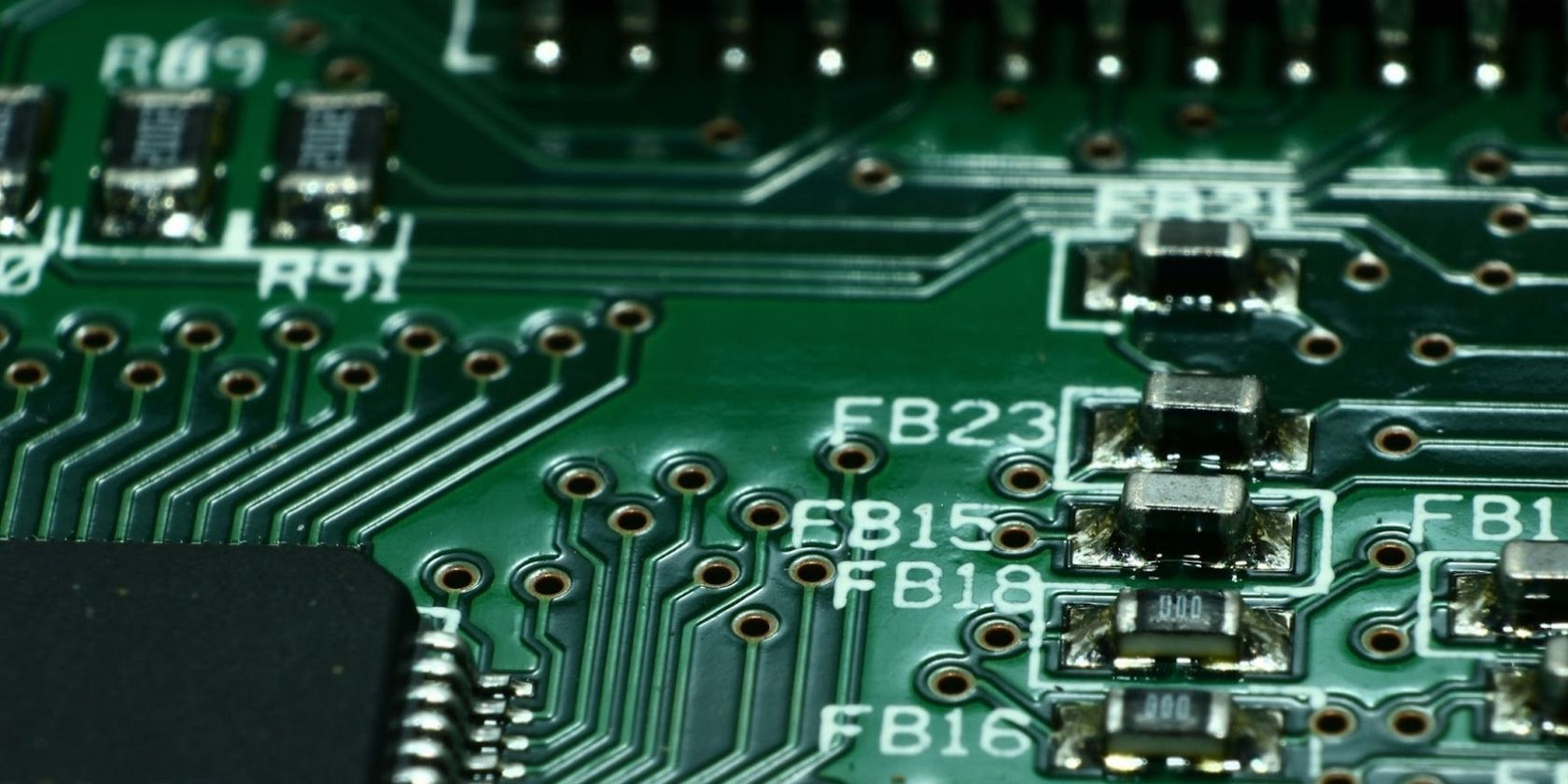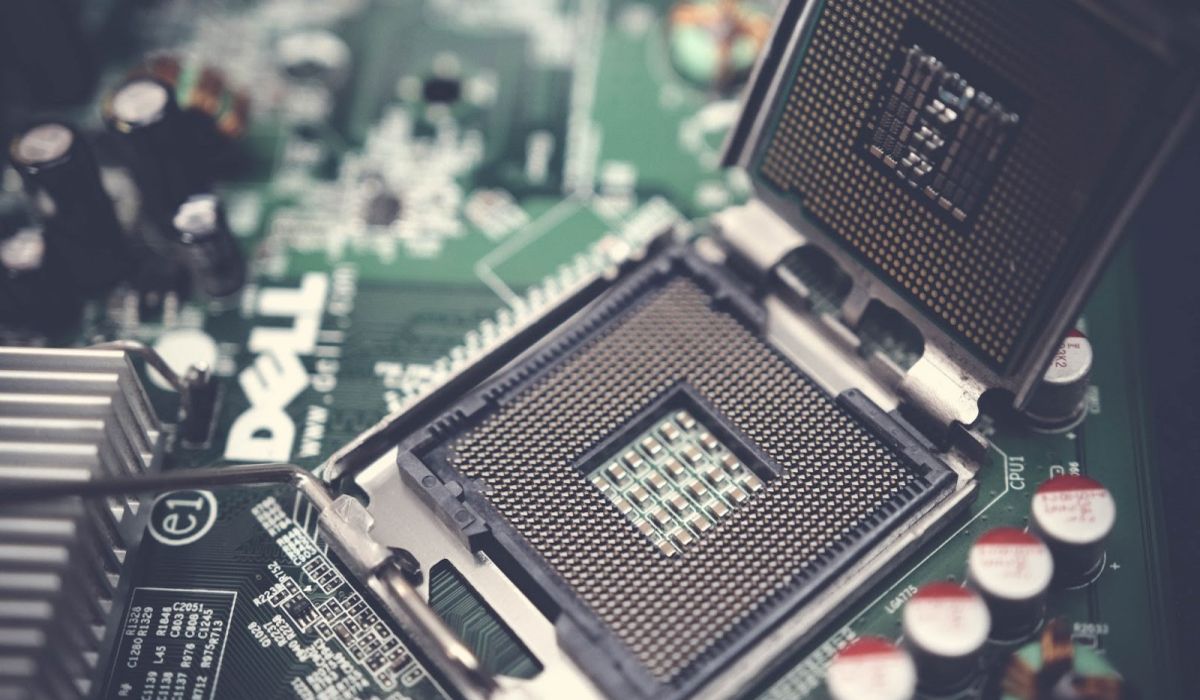Artificial Intelligence (AI) has made remarkable advancements since the end of 2022. Increasingly sophisticated AI-based software applications are revolutionizing various sectors by providing inventive solutions. From seamless customer service chatbots to stunning visual generators, AI is enhancing our daily experiences. However, behind the scenes, AI hardware is pivotal in fueling these intelligent systems.
What Is AI Hardware?
AI hardware refers to specialized computer hardware designed to perform AI-related tasks efficiently. This includes specific chips and integrated circuits that offer faster processing and energy-saving capabilities. In addition, they provide the necessary infrastructure to execute AI algorithms and models effectively.
The role of AI hardware in machine learning is crucial as it aids in the execution of complex programs for deep learning models. Furthermore, compared to conventional computer hardware like central processing units (CPUs), AI hardware can accelerate numerous processes, significantly reducing the time and cost required for algorithm training and execution.
Furthermore, with the growing popularity of AI and machine learning models, there has been an increased demand for acceleration solutions. As a result, companies like Nvidia, the world's leading GPU manufacturer, have witnessed substantial growth. In June 2023, The Washington Post reported that Nvidia's market value surpassed $1 trillion, surpassing the worth of Tesla and Meta. Nvidia's success highlights the significance of AI hardware in today's technology landscape.
1. Edge Computing Chips
If you're familiar with what edge computing is, you likely have some understanding of edge computing chips. These specialized processors are designed specifically to run AI models at the network's edge. With edge computing chips, users can process data and perform crucial analytical operations directly at the source of the data, eliminating the need for data transmission to centralized systems.
The applications for edge computing chips are diverse and extensive. They find utility in self-driving cars, facial recognition systems, smart cameras, drones, portable medical devices, and other real-time decision-making scenarios.
The advantages of edge computing chips are significant. Firstly, they greatly reduce latency by processing data near its source, enhancing the overall performance of AI ecosystems. Additionally, edge computing enhances security by minimizing the amount of data that needs to be transmitted to the cloud.
Here are some of the leading manufacturers of AI hardware in the field of edge computing chips:
- Jetson Xavier NX
- AMD EPYC™ Embedded 3000 Series
- Jetson Nano
- ARM Cortex-M55
- ARM Ethos-U55
2. Quantum Hardware
Some might wonder, "What is quantum computing, and is it even real?" Quantum computing is indeed a real and advanced computing system that operates based on the principles of quantum mechanics. While classical computers use bits, quantum computing utilizes quantum bits (qubits) to perform computations. These qubits enable quantum computing systems to process large datasets more efficiently, making them highly suitable for AI, machine learning, and deep learning models.
The applications of quantum hardware have the potential to revolutionize AI algorithms. For example, in drug discovery, quantum hardware can simulate the behavior of molecules, aiding researchers in accurately identifying new drugs. Similarly, in material science, it can contribute to climate change predictions. The financial sector can benefit from quantum hardware by developing price prediction tools.
Below are the significant benefits of quantum computing for AI:
- Speed: Quantum computers are much faster than traditional computers, capable of solving complex problems that would take billions of years within seconds.
- Accuracy: Quantum computing allows AI models to be trained with large amounts of data in a shorter time, leading to higher accuracy in predictions and analysis.
- Innovation: Quantum computing hardware opens up possibilities for new developments and breakthroughs in the market, unlocking previously unattainable computational power.
3. Application Specific Integrated Circuits (ASIC)
Application Specific Integrated Circuits (ASICs) are designed for targeted tasks like image processing and speech recognition (though you may have heard about ASICs through cryptocurrency mining). Their purpose is to accelerate AI procedures to meet the specific needs of your business, providing an efficient infrastructure that enhances overall speed within the ecosystem.
ASICs are cost-effective compared to traditional central processing units (CPUs) or graphics processing units (GPUs). This is due to their power efficiency and superior task performance, surpassing CPUs and GPUs. As a result, ASICs facilitate AI algorithms across various applications.
These integrated circuits can handle substantial volumes of data, making them instrumental in training artificial intelligence models. Their applications extend to diverse fields, including natural language processing of texts and speech data. Furthermore, they simplify the deployment of complex machine-learning mechanisms.
4. Neuromorphic Hardware
Neuromorphic hardware represents a significant advancement in computer hardware technology, aiming to mimic the functioning of the human brain. This innovative hardware emulates the human nervous system and adopts a neural network infrastructure, operating with a bottom-up approach. The network comprises interconnected processors, referred to as neurons.
In contrast to traditional computing hardware that processes data sequentially, neuromorphic hardware excels at parallel processing. This parallel processing capability enables the network to simultaneously execute multiple tasks, resulting in improved speed and energy efficiency.
Furthermore, neuromorphic hardware offers several other compelling advantages. It can be trained with extensive datasets, making it suitable for a wide range of applications, including image detection, speech recognition, and natural language processing. Additionally, the accuracy of neuromorphic hardware is remarkable, as it rapidly learns from vast amounts of data.
Here are some of the most notable neuromorphic computing applications:
- Self-driving vehicles can leverage neuromorphic computing hardware to enhance their ability to perceive and interpret their surroundings.
- In medical diagnosis, neuromorphic hardware can contribute to image detection features, aiding in the identification of diseases.
- Various IoT (Internet of Things) devices can utilize neuromorphic hardware to collect and analyze data, enabling efficient data processing and decision-making.
5. Field Programmable Gate Array (FPGA)
A Field Programmable Gate Array (FPGA) is an advanced integrated circuit that offers valuable benefits for implementing AI software. These specialized chips can be customized and programmed to meet the specific requirements of the AI ecosystem, earning them the name "field-programmable."
FPGAs consist of configurable logic blocks (CLBs) that are interconnected and programmable. This inherent flexibility allows for a wide range of applications in the field of AI. In addition, these chips can be programmed to handle operations of varying complexity levels, adapting to the system's specific needs.
Operating like a read-only memory chip but with a higher gate capacity, FPGAs offer the advantage of re-programmability. This means they can be programmed multiple times, allowing for adjustments and scalability per the evolving requirements. Furthermore, FPGAs are more efficient than traditional computing hardware, offering a robust and cost-effective architecture for AI applications.
In addition to their customization and performance advantages, FPGAs also provide enhanced security measures. Their complete architecture ensures robust protection, making them reliable for secure AI implementations.
What Is the Future of AI Hardware?
AI hardware is on the cusp of transformative advancements. Evolving AI applications demand specialized systems to meet computational needs. Innovations in processors, accelerators, and neuromorphic chips prioritize efficiency, speed, energy savings, and parallel computing. Integrating AI hardware into edge and IoT devices enables on-device processing, reduced latency, and enhanced privacy. Convergence with quantum computing and neuromorphic engineering unlocks the potential for exponential power and human-like learning.
The future of AI hardware holds the promise of powerful, efficient, and specialized computing systems that will revolutionize industries and reshape our interactions with intelligent technologies.




